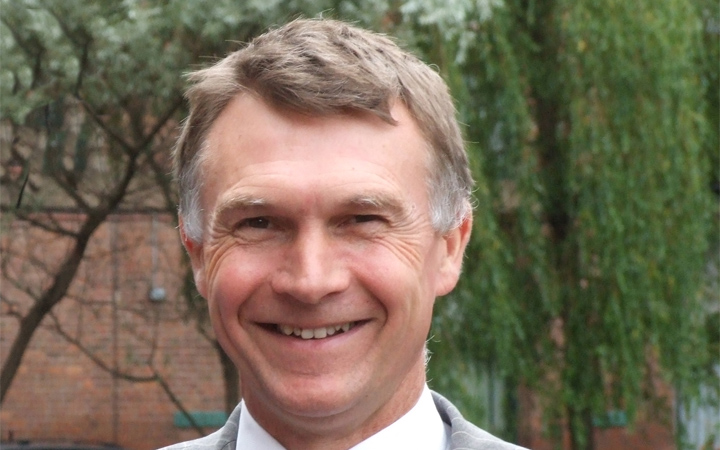Ian Ferguson appointed as High Streets Task Force Expert
News Article
We are delighted to announce that our Strategy and Development Director Ian Ferguson, has been appointed as an Expert with High Streets Task Force.
The High Streets Task Force has appointed over 150 experienced professionals to work with towns in England over the next four years, supporting their transformation efforts and helping to tackle complex barriers to change.
Local authorities will receive free expert advice, mentoring and other help, funded by government, that can help them to evolve their town centres, progress local plans, bid for investment, and respond to the impact of COVID-19.
The new ‘experts register’ is the first of its kind in the UK – bringing together experienced professionals across a broad range of specialisms, from architecture to planning, to sustainable design, place leadership and civic engagement. The Task Force has recruited highly qualified experts from leading national bodies: Royal Town Planning Institute (RTPI), Landscape Institute, Design Council, and the Institute of Place Management.
These new High Street Task Force Experts, Mentors and Facilitators will deliver a range of services, including workshops with local authorities and communities to explore and build local visions, mentoring for place leaders, and bespoke advice to help councils tackle complex issues that are blocking progress.
The Task Force has provided online support and resources for places since June 2020, focusing on COVID-19 response and recovery as well as longer term regeneration. Appointed Experts, Mentors and Facilitators will continue this work through a mix of remote and in-person delivery where appropriate, beginning in late 2020 with places selected by the Task Force based on local need.
In building the experts register, each body has identified a list of between ten and twelve areas of expertise which are represented by its membership. This approach ensures that towns are supported by those with specific expertise that are best placed to advise on their issues.
Those appointed as High Streets Task Force Experts have at least 5 years’ experience and can demonstrate where they have helped solve similar complex place-based challenges relevant to their field. Experts, Mentors or Facilitators have all committed to the High Streets Task Force Charter which ensures high standards of professional conduct and ways of working.
The areas of expertise represented by Experts, Mentors and Facilitators appointed from each body are:
Design Council
- Civic activity, engagement and participation
- Diversity and inclusive design
- Healthy placemaking, social and environmental sustainability
- Sustainable building design, whole life carbon and meeting UK’s net zero target
- Urban design and streets
- Architecture
- Repurposing buildings
- Future trends insight
- Future proofing town centre environments
- Pedestrian flow and movement
- Service design and user research
Landscape Institute
- Design – public realm
- Masterplanning (including visioning)
- Visualisation and photography
- Landscape assessment
- Sustainability, climate change and resilience
- Community engagement (including co-design)
- Inclusive design Landscape construction (& Implementation)
- Landscape engineering
- Management of landscapes or parks management or people/visitor management
- Procurement and tendering
- Water Management (including Water Sensitive Urban Design & SuDS)
Institute of Place Management
- Place leadership and visioning
- Place marketing and branding
- Stakeholder engagement, communication and management
- Governance, place management partnership structures (inc. BIDs)
- Place activation (events, festivals, arts and culture, markets, pop-ups)
- Consensus building and conflict resolution across councils, community and business
- Place analytics and dashboards (integrating and sharing sources of data)
- Place-based approaches to economic, social and other challenges (e.g. homelessness)
- Identifying local priorities for improving vitality and viability
- Identifying and communicating complex trends and factors affecting town centres and high streets
Royal Town Planning Institute
- Town centre/high street planning- general- all uses and mixes (including retail, commercial and residential, leisure, tourism, art and culture)
- Town centre / high street assessments including town centre and primary shopping area designations, boundaries review, range of uses, sequential approach, PDRs and application of policy
- Planning for heritage and conservation/historic environment in a town centre/high street context
- Urban regeneration, urban design and place making (when public realm/greenspace is not a major focus)
- Development and regeneration frameworks including masterplanning (when not anchored by public realm/greenspace)
- Transport and infrastructure planning and management
- Participatory planning (including community and stakeholder engagement)
- Assessments and modelling including modelling/visualisation of visions/plans (via data insight and analytics)
- Environmental planning, sustainability and climate change resilience
- Health and well-being planning

